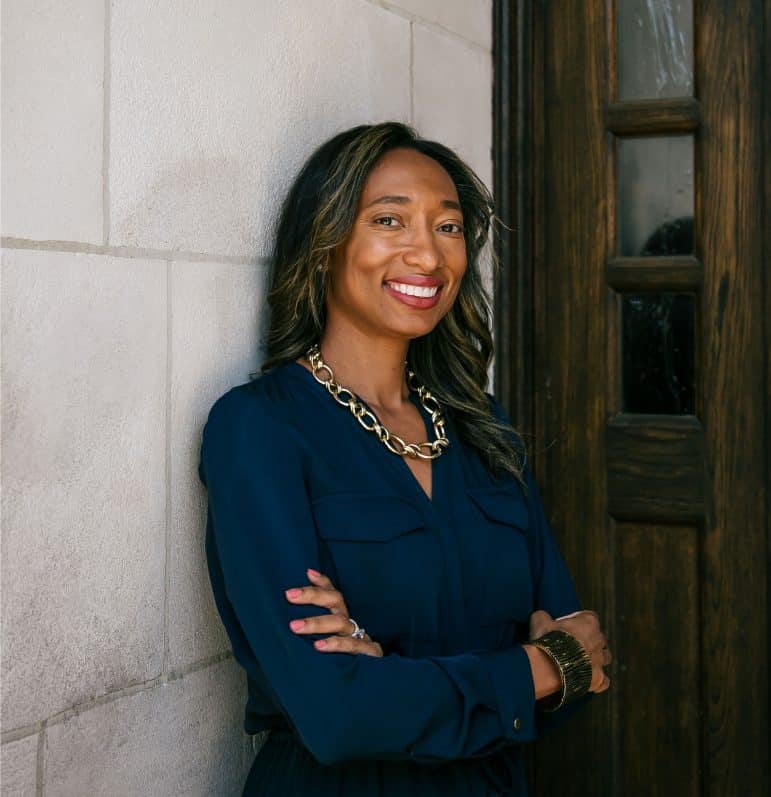The following essay is by Nubia DuVall Wilson, current 2nd Vice President of the South Orange-Maplewood Board of Education. The views expressed are her own and do not represent the Board.
It’s no secret that I care significantly about mental health. After being diagnosed with Post-Traumatic Stress Disorder (PTSD) in the summer of 2016, mental health recovery has been at the forefront of my priorities for myself and others. Although I had oh-so-quiet aspirations of public office in South Orange about 6 years ago, I knew I wasn’t ready to try until 2022. Since my diagnosis, I have spent significant time working on healing my PTSD. It hasn’t been easy and the journey never ends. In 2022, I knew running for and being on the Board of Education (BOE) was going to test my trauma recovery methods unlike any other endeavor of mine.
When I see my friends, one of the first questions they ask me is, “Are you okay?” and truthfully the answer is, “Yes, I am,” as well as very tired! When I reflect on my first year on the Board, I am proud of what I have accomplished with my fellow board members. Although there were bumpy roads along the way, they did not stop me from carrying out my intentions to govern our school district to the best of my ability.

Nubia DuVall Wilson
I know how complicated it is for many folks to admit their hardships with mental health. I think it is important for leaders to share their triumphs and trials, so we can learn from one another. If you aspire to hold any type of leadership position, but are fearful because of your adversity with anxiety, PTSD or any other neurodiversity, here are strategies and practices that worked well for me as a freshman BOE member.
- Track and anticipate your triggers – Unfortunately, you cannot always anticipate how things you see, hear or touch will trigger you. I especially have these issues because of repressed memories from enduring abuse as a child. Take control by keeping a log as they come, which will help you anticipate triggers in the future and be more prepared to engage in a healing response.
- Consider disclosure and community – One of the most impactful tools of my healing journey is curating a nurturing community around me. When my teammates know that a topic could be difficult for me, they ask me in advance if I will be okay or even give me a heads up that an agenda item is coming that could cause me to be panicky. Having this type of support reduces anxiety because you know that even if you do have a trauma response in a meeting, you will not be judged, but rather supported. It also encourages all team members to be more vulnerable and share their personal obstacles.
- Practice breathwork and mantras – A sign of PTSD is hypervigilance, when you are in a constant state of high alert (hearing noises louder than they actually are, obsessively avoiding potential threats, avoiding public gatherings, always facing/looking for exits, etc.). Basically, your mind and body try to protect you from both real and presumed danger. It can last for hours or feel like there is no end in sight–and it is exhausting. Deep breathing and saying mantras (e.g., “I am safe, I am loved, and any challenges make me stronger and wiser”) before intense situations brought me to a state of calm and peace that enabled me to endure unpredictable situations. Deep breathing can reduce high cortisol levels that have the capacity to harm the brain and negatively affect thinking and learning.
- Try saying no – Many say that great leaders know when to say no. Saying no (to family, friends, colleagues, etc.) was a struggle for me, but after being diagnosed with PTSD, I learned that saying no can have positive consequences. It also creates boundaries. No might mean, “I am not the right leader at this time for the task” or “I am visioning a different future and this is a distraction and a disservice to the team.” Our yes’s surely outweigh the no’s in our society, but I believe when we create environments that enable leaders to pause and consider all sides before declaring absolutes, we accept (and appreciate) the complexities of making binary decisions.
*I am currently a member of the South Orange-Maplewood Board of Education and the opinions expressed in this essay are my own and do not represent the Board.

